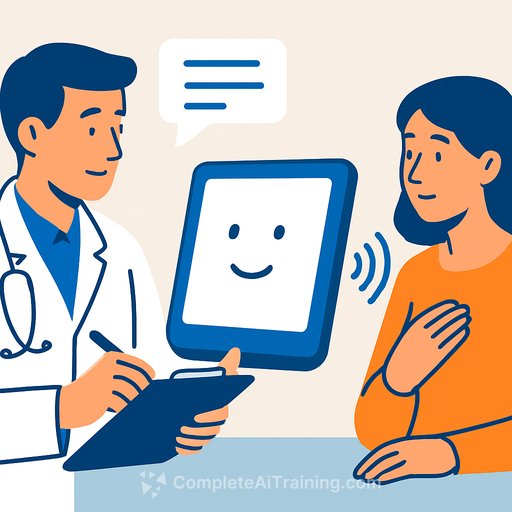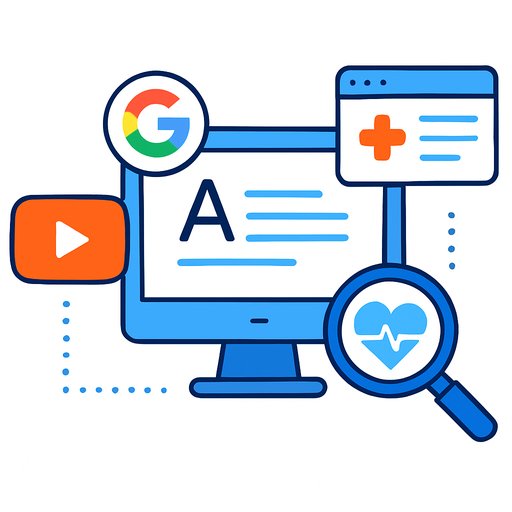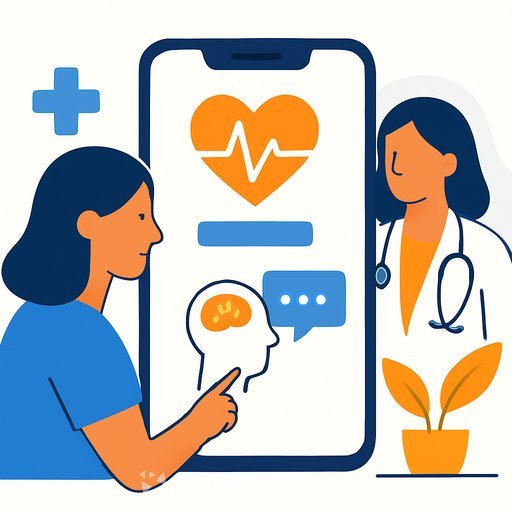Aide Health launches Mirror, an AI scribe built for patients
UK digital health company Aide Health has introduced Mirror, which it claims is the UK's first AI-powered scribe for patients. The goal is simple: help people recall and act on what was said in the room, long after the appointment ends.
The problem is well known. Studies show up to 80% of medical details are forgotten immediately after visits, and nearly half of what's remembered can be off the mark. Medication adherence hovers around 50%, a driver of treatment failure, while communication issues are linked to most adverse events, with many occurring during handoffs. Poor communication has been estimated to cost the NHS around £1 billion per year (2017).
What Mirror does
Mirror discreetly records a consultation and produces a personalised summary in clear, plain English that patients can revisit any time. It's meant for use across settings: GP surgeries, hospitals, pharmacies, and community care. Aide Health expects it to be especially useful for people living with chronic conditions, those with limited health literacy, and individuals with cognitive challenges such as dementia.
- Captures key points: diagnoses, medication changes, tests, next steps, and red flags
- Summaries patients can share with family or carers to keep everyone aligned
- Helps reduce anxiety and improve adherence by making instructions easy to review
Why now
In England alone, there were roughly 20 million face-to-face GP appointments in June. That's tens of millions of instructions and plans at risk of being missed or misinterpreted. Aide Health says it built Mirror for patients first, to make recall and action simpler without adding work for clinicians.
The idea came from a personal place: supporting a family member with early-stage Alzheimer's during a hospital stay. Amid trauma and unfamiliar surroundings, crucial details can evaporate fast-especially when a patient is alone between rounds or transfers.
Privacy, consent, and clinical safeguards
Mirror's approach is meant to reassure both clinicians and patients. Audio is used only to generate the AI summary and then deleted. Patients are told that AI can make mistakes, are encouraged to follow the clinician's prescription instructions, and to check back with a healthcare professional if unsure.
- Clear consent: Patients should be informed before recording starts and understand how summaries will be used
- Transparency: Prominent notice that AI may be inaccurate; clinical guidance remains the source of truth
- Boundaries: The patient-facing summary is not a substitute for the clinical record
Where it fits in the care pathway
- Primary care: After-visit summaries to support medication starts, deprescribing, and referrals
- Hospital inpatient and ED: Discharge instructions patients and families can revisit on the journey home
- Pharmacy: Reinforce dosing, timing, and interactions at the counter
- Chronic care: Consistent recall across multiple appointments, clinicians, and settings
- Carer support: Shared summaries help families coordinate without relying on memory
Implementation checklist for healthcare teams
- Policy and consent: Define where recording is appropriate, how consent is obtained, and how summaries are shared
- Staff script: Equip clinicians and reception teams with a simple explanation patients can trust
- Environment: Post signage where recording is permitted; set expectations for privacy-sensitive areas
- Governance: Complete DPIA/IG review, confirm data flows, retention (audio deletion), and patient rights
- Clinical workflow: Clarify that Mirror supports recall; it doesn't replace clinician notes or patient letters
- Equity: Provide alternatives for patients without smartphones or with accessibility needs
- Pilot metrics: Track patient recall, adherence, follow-up call volume, readmissions, and complaints related to miscommunication
Benefits and watch-outs
- Potential benefits: Better recall, fewer misunderstandings, higher adherence, more confident self-management
- Risks to manage: Misheard audio in noisy settings, clinical nuance lost in simplification, over-reliance on AI summaries
- Good practice: Encourage patients to review summaries with clinicians and flag any confusion early
Evidence backdrop
The adherence problem is persistent; global estimates often cite around 50% adherence for long-term therapies. Communication remains a major root cause in adverse events, especially at transitions. For clinicians, a patient-held record of key points-accurate, plain, and accessible-can reduce friction across the care team.
Bottom line for healthcare leaders
Mirror aims to reduce the cognitive load on patients and families without adding tasks to clinical staff. If you're exploring it, start with a small, well-governed pilot, measure signal not noise, and keep human oversight at the center. The test is simple: do patients act more accurately on the plan, and does your team see fewer preventable callbacks and errors?
If your organisation is building AI skills across teams, practical training can speed up safe, responsible adoption. See curated options at Complete AI Training.
Your membership also unlocks:






